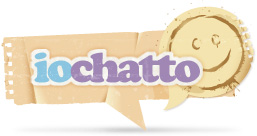Con il presente documento, ai sensi degli artt. 13 e 122 del D. Lgs. 196/2003 (“codice privacy”), nonché in base a quanto previsto dal Provvedimento generale del Garante privacy dell’8 maggio 2014, ISayBlog titolare del trattamento, fornisce gli utenti del sito alcune informazioni relative ai cookie utilizzati.
Cosa sono
Un “cookie” è un piccolo file di testo creato sul computer dell’utente nel momento in cui questo accede ad un determinato sito, con lo scopo di immagazzinare informazioni sulla visita, come la lingua preferita e altre impostazioni. Ciò può facilitare la visita successiva e aumentare l’utilità del sito. Per questo motivo i cookie svolgono un ruolo importante.
I cookie sono inviati al browser dell’utente (Internet Explorer, Mozilla Firefox, Google Chrome, ecc.) dal sito web visitato, in particolare dal server web (ovvero il computer sul quale è in esecuzione il sito web). Nel corso della navigazione l’utente potrebbe ricevere anche cookie di siti diversi (di “terze parti”), impostati direttamente da gestori di detti siti web e utilizzati per le finalità e secondo le modalità da questi definiti.
Tipologie di cookie utilizzati in questo sito web
Cookie del Titolare
Il sito utilizza solo cookie tecnici, rispetto ai quali, ai sensi dell’art. 122 del codice privacy e del Provvedimento del Garante dell’8 maggio 2014, non è richiesto alcun consenso da parte dell’interessato. Più precisamente il sito utilizza:
– cookie tecnici strettamente necessari per consentire la navigazione da parte dell’utente, di seguito indicati nel dettaglio
In assenza di tali cookie, il sito web non potrebbe funzionare correttamente.
– cookie tecnici che agevolano la navigazione dell’utente, di seguito indicati nel dettaglio
Cookie di terze parti
Attraverso il sito https://www.politicalive.com/ sono installati alcuni cookie di terze parti, anche profilanti, che si attivano cliccando “ok” sul banner.
Si riportano nel dettaglio i singoli cookie di terze parti, nonché i link attraverso i quali l’utente può ricevere maggiori informazioni e richiedere la disattivazione dei cookie.
Nielsen: https://priv-policy.imrworldwide.com/priv/browser/it/it/optout.htm
Triboo: https://cookie-siti-in-concessione.triboomedia.it/
Google Analytics
Il Sito utilizza Google Analytics. Si tratta di un servizio di analisi web fornito da Google Inc. (“Google”) che utilizza dei cookie che vengono depositati sul computer dell’utente per consentire analisi statistiche in forma aggregata in ordine all’utilizzo del sito web visitato.
I Dati generati da Google Analytics sono conservati da Google così come indicato nella Informativa reperibile al seguente link: https://developers.google.com/analytics/devguides/collection/analyticsjs/cookie-usage
Per consultare l’informativa privacy della società Google Inc., titolare autonomo del trattamento dei dati relativi al servizio Google Analytics, si rinvia al sito internet http://www.google.com/intl/en/analytics/privacyoverview.html
Al seguente link https://tools.google.com/dlpage/gaoptout è inoltre reso disponibile da Google il componente aggiuntivo del browser per la disattivazione di Google Analytics.
Monitoraggio conversioni di Google AdWords (Google Inc.)
E’ un servizio di statistiche fornito da Google Inc. che collega le azioni compiute dagli utenti di questo sito ai dati provenienti dal network di annunci Google AdWords.
Dati personali raccolti: cookie e dati di utilizzo.
Per maggiori informazioni: Privacy Policy
Pubblicità
Questi servizi consentono di utilizzare i dati dell’utente per finalità di comunicazione commerciale in diverse forme pubblicitarie, quali il banner, anche in relazione agli interessi dell’utente e potrebbero utilizzare Cookie per identificare l’utente al fine di visualizzare annunci pubblicitari personalizzati in base agli interessi e al comportamento dell’utente stesso, rilevati anche al di fuori di questo sito.
Per avere maggiori informazioni in merito, ti suggeriamo di verificare le informative privacy dei rispettivi servizi.
Social Buttons
I Social buttons sono quei particolari “pulsanti” presenti sul sito che raffigurano le icone di social network (esempio, Facebook e Twitter) e consentono agli utenti che stanno navigando di interagire con un “click” direttamente con i social network.
I social buttons utilizzati dal sito nella pagina “Contatti” e nel footer della pagina, nell’area dedicata alla pubblicazione dei dati societari, sono dei link che rinviano agli account del Titolare sui social network raffigurati. Tramite l’utilizzo di tali pulsanti non sono pertanto installati cookie di terze parti.
I social buttons utilizzati invece nella pagina “Blog” consentono al social network cui l’icona si riferisce di acquisisce i dati relativi alla visita. Tramite l’utilizzo di tali pulsanti sono pertanto installati cookie di terze parti, anche profilanti. Il sito non condivide però alcuna informazione di navigazione o dato dell’utente acquisiti attraverso il proprio sito con i social network accessibili grazie ai Social buttons.
Si riportano i link ove l’utente può prendere visione dell’informativa privacy relativa alla gestione dei dati da parte dei Social cui i pulsanti rinviano:
https://support.twitter.com/articles/20170519-uso-dei-cookie-e-di-altre-tecnologie-simili-da-parte-di-twitter
https://www.facebook.com/help/cookies
https://www.linkedin.com/legal/cookie_policy
Modalità del trattamento
Il trattamento viene effettuato con strumenti automatizzati dal Titolare. Non viene effettuata alcuna diffusione o comunicazione.
Conferimento dei dati
Fatta eccezione per i cookie tecnici, il conferimento dei dati è rimesso alla volontà dell’interessato che decida di navigare sul sito dopo aver preso visione dell’informativa breve contenuta nell’apposito banner e/o di usufruire dei servizi che richiedano l’installazione di cookie (così per la condivisione dei contenuti tramite Add This).
L’interessato può evitare l’installazione dei cookie mantenendo il banner (Astenendosi dal chiuderlo cliccando sul tasto “OK”) nonché attraverso apposite funzioni disponibili sul proprio browser.
Disabilitazione dei cookie
Fermo restando quanto sopra indicato in ordine ai cookie strettamente necessari alla navigazione, l’utente può eliminare gli altri cookie attraverso la funzionalità a tal fine messa a disposizione dal Titolare tramite la presente informativa oppure direttamente tramite il proprio browser.
Ciascun browser presenta procedure diverse per la gestione delle impostazioni. L’utente può ottenere istruzioni specifiche attraverso i link sottostanti.
Microsoft Windows Explorer
Google Chrome
Mozilla Firefox
Apple Safari
La disattivazione dei cookie di terze parti è inoltre possibile attraverso le modalità rese disponibili direttamente dalla società terza titolare per detto trattamento, come indicato ai link riportati nel paragrafo “cookie di terze parti”.
Per avere informazioni sui cookie archiviati sul proprio terminale e disattivarli singolarmente si rinvia al link: http://www.youronlinechoices.com/it/le-tue-scelte
Diritti dell’interessato
Art. 7 D. Lgs. 196/2003
1. L’interessato ha diritto di ottenere la conferma dell’esistenza o meno di dati personali che lo riguardano, anche se non ancora registrati, e la loro comunicazione in forma intelligibile.
2. L’interessato ha diritto di ottenere l’indicazione:
a) dell’origine dei dati personali;
b) delle finalità e modalità del trattamento;
c) della logica applicata in caso di trattamento effettuato con l’ausilio di strumenti elettronici;
d) degli estremi identificativi del titolare, dei responsabili e del rappresentante designato ai sensi dell’articolo 5, comma 2;
e) dei soggetti o delle categorie di soggetti ai quali i dati personali possono essere comunicati o che possono venirne a conoscenza in qualità di rappresentante designato nel territorio dello Stato, di responsabili o incaricati.
3. L’interessato ha diritto di ottenere:
a) l’aggiornamento, la rettificazione ovvero, quando vi ha interesse, l’integrazione dei dati;
b) la cancellazione, la trasformazione in forma anonima o il blocco dei dati trattati in violazione di legge, compresi quelli di cui non è necessaria la conservazione in relazione agli scopi per i quali i dati sono stati raccolti o successivamente trattati;
c) l’attestazione che le operazioni di cui alle lettere a) e b) sono state portate a conoscenza, anche per quanto riguarda il loro contenuto, di coloro ai quali i dati sono stati comunicati o diffusi, eccettuato il caso in cui tale adempimento si rivela impossibile o comporta un impiego di mezzi manifestamente sproporzionato rispetto al diritto tutelato.
4. L’interessato ha diritto di opporsi, in tutto o in parte:
a) per motivi legittimi al trattamento dei dati personali che lo riguardano, ancorché pertinenti allo scopo della raccolta;
b) al trattamento dei dati personali che lo riguardano a fini di invio di materiale pubblicitario o di vendita diretta o per il compimento di ricerche di mercato o di comunicazione commerciale.
Titolare
Il titolare del trattamento è ISayBlog



I just took a trip through the airports and was reminded of how important dependable aircraft transit can be for a easy trip Airport car service
I appreciate this article! More people need to know about the treatments available at mental health .
This was highly helpful. For more, visit Connect SEO UK .
Have you ever considered about including a little bit more than just your
articles? I mean, what you say is important and everything.
Nevertheless imagine if you added some great photos or video clips to
give your posts more, “pop”! Your content is excellent but with pics and clips, this site could certainly be one of the best
in its field. Terrific blog!
The importance of creating safe spaces where people feel comfortable sharing their experiences cannot be overstated. addiction treatment
Just scheduled a pressure wash for my patio—can’t wait to see the results! Pressure Washing Company
Thanks for writing about this! For those looking for help, I recommend checking out mental health .
https://tgstat.ru/channel/@VavadaRuGame/83
https://tgstat.ru/channel/@VavadaRuGame/1093
Appreciate the detailed post. Find more at In home care .
For my most recent trip, I just had the joy of using an airports automobile support, which totally transformed my travel experience. The ease of having a car waiting for me at the immigrants was unmatched from the moment I landed limo service
The information on average costs for roof cleaning is incredibly useful; it’s definitely something I need to budget for! emergency board up Atlanta
I found this very interesting. For more, visit Group6 complete web design .
Appreciate the useful tips. For more, visit We Buy Houses Milwaukee .
I could spend hours just exploring the menu at ###, so many choices!! highly searched indian restaurant spokane
This was highly educational. For more, visit Dent Erasers LLC | Paintless Dent Removal .
Hi, just wanted to tell you, I liked this post. It was inspiring.
Keep on posting!
This was very enlightening. For more, visit Grup6 .
This is a good tip especially to those new to the blogosphere.
Brief but very precise information… Appreciate your sharing this one.
A must read article!
https://krabter.ru
Thanks for the practical tips. More at atv off-road tours dallas .
Очень интересно узнать больше о вашем опыте работы с SMM; какие результаты получить можно с помощью команды #SMM# от ## SMM продвижение
Thanks for the thorough analysis. More info at Group6 .
Appreciate the helpful advice. For more, visit Liberty Lending Consultants .
Valuable information! Discover more at car hire .
Thanks for the clear breakdown. Find more at phim sex nhật bản .
I just had the opportunity to use an excellent aircraft transit assistance, and I can’t advise it highly enough. A trusted aircraft automobile company made my quest stress-free while waiting at the aircraft and managing through the hustle and bustle Airport car service
usa canada pharm: USACanadaPharm – USACanadaPharm
Thanks for the useful suggestions. Discover more at biology tuition eunos .
The distinction between routine maintenance and emergency repairs is crucial for homeowners in Atlanta! Great points made here. roof replacement Atlanta
MetaMask Chrome is excellent for crypto traders. The convenience of accessing dApps and swapping tokens directly is unmatched.
Useful advice! For more, visit water restoration .
canadian pharmacies that deliver to the us [url=https://usacanadapharm.shop/#]canadapharmacyonline legit[/url] canadian pharmacy king
Thanks for the comprehensive read. Find more at Big Boss Tree Servise .
This was quite informative. More at Pest control service Davenport IA .
посетить веб-сайт [url=https://vodkabetslot.ru]водка бет официальный сайт[/url]
usa canada pharm: online canadian drugstore – canadian drug pharmacy
Thanks for the great information. More at https://maps.app.goo.gl/LdnK8UHKTw388rZu7 .
This was highly useful. For more, visit best atv rentals dallas .
Appreciate the thorough information. For more, visit phim porn .
Thanks for the insightful write-up. More like this at seo .
This was quite helpful. For more, visit https://www.youtube.com/@SherpTours .
usa canada pharm: USACanadaPharm – canadian online pharmacy
Can you elaborate more on the biggest problems with metal roofs? I’ve been considering one for my home and want to be informed! roof replacement Atlanta
1win pariuri [url=http://1win5026.ru/]http://1win5026.ru/[/url] .
Thank you for sharing resources that promote healthy coping mechanisms during recovery; they are so needed! addiction treatment
Superb blog you have here but I was wondering if
you knew of any message boards that cover the same topics talked
about in this article? I’d really like to be a part of community
where I can get responses from other experienced people that share the same interest.
If you have any suggestions, please let me know. Thank you!
Space, time: The continual question
If time moves differently on the peaks of mountains than the shores of the ocean, you can imagine that things get even more bizarre the farther away from Earth you travel.
[url=https://kra30c.cc]кракен даркнет[/url]
To add more complication: Time also passes slower the faster a person or spacecraft is moving, according to Einstein’s theory of special relativity.
Astronauts on the International Space Station, for example, are lucky, said Dr. Bijunath Patla, a theoretical physicist with the US National Institute of Standards and Technology, in a phone interview. Though the space station orbits about 200 miles (322 kilometers) above Earth’s surface, it also travels at high speeds — looping the planet 16 times per day — so the effects of relativity somewhat cancel each other out, Patla said. For that reason, astronauts on the orbiting laboratory can easily use Earth time to stay on schedule.
https://kra30c.cc
kra31cc
For other missions — it’s not so simple.
Fortunately, scientists already have decades of experience contending with the complexities.
Spacecraft, for example, are equipped with their own clocks called oscillators, Gramling said.
“They maintain their own time,” Gramling said. “And most of our operations for spacecraft — even spacecraft that are all the way out at Pluto, or the Kuiper Belt, like New Horizons — (rely on) ground stations that are back on Earth. So everything they’re doing has to correlate with UTC.”
But those spacecraft also rely on their own kept time, Gramling said. Vehicles exploring deep into the solar system, for example, have to know — based on their own time scale — when they are approaching a planet in case the spacecraft needs to use that planetary body for navigational purposes, she added.
For 50 years, scientists have also been able to observe atomic clocks that are tucked aboard GPS satellites, which orbit Earth about 12,550 miles (20,200 kilometers) away — or about one-nineteenth the distance between our planet and the moon.
Studying those clocks has given scientists a great starting point to begin extrapolating further as they set out to establish a new time scale for the moon, Patla said.
“We can easily compare (GPS) clocks to clocks on the ground,” Patla said, adding that scientists have found a way to gently slow GPS clocks down, making them tick more in-line with Earth-bound clocks. “Obviously, it’s not as easy as it sounds, but it’s easier than making a mess.”
It’s so important to talk about the various options for mental health . Education is key!
Lunar clockwork
What scientists know for certain is that they need to get precision timekeeping instruments to the moon.
[url=https://kra30c.cc]kraken официальный сайт[/url]
Exactly who pays for lunar clocks, which type of clocks will go, and where they’ll be positioned are all questions that remain up in the air, Gramling said.
“We have to work all of this out,” she said. “I don’t think we know yet. I think it will be an amalgamation of several different things.”
https://kra30c.cc
kraken тор
Atomic clocks, Gramling noted, are great for long-term stability, and crystal oscillators have an advantage for short-term stability.
“You never trust one clock,” Gramling added. “And you never trust two clocks.”
Clocks of various types could be placed inside satellites that orbit the moon or perhaps at the precise locations on the lunar surface that astronauts will one day visit.
As for price, an atomic clock worthy of space travel could cost around a few million dollars, according Gramling, with crystal oscillators coming in substantially cheaper.
But, Patla said, you get what you pay for.
“The very cheap oscillators may be off by milliseconds or even 10s of milliseconds,” he added. “And that is important because for navigation purposes — we need to have the clocks synchronized to 10s of nanoseconds.”
A network of clocks on the moon could work in concert to inform the new lunar time scale, just as atomic clocks do for UTC on Earth.
(There will not, Gramling added, be different time zones on the moon. “There have been conversations about creating different zones, with the answer: ‘No,’” she said. “But that could change in the future.”)